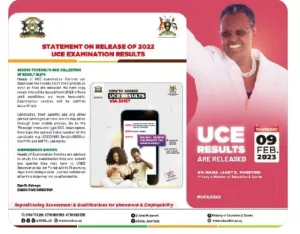GES Director General Dr. Nkansah, Leaving Unprecedented Mark

GES Director General Dr. Nkansah
GES Director General Dr. Nkansah, Leaving Unprecedented Mark
GES Director General Dr. Nkansah is leaving an unprecedented mark. All previous Director General of GES has done their best on the job. However, the current Director General is leaving marks that have never been witnessed.
Even without comparing the present Director General to the previous ones, the current Director General is achieving results that teachers have never witnessed.
The successes chalked by the Director General have been a relief to many staff. Some of the problems that teachers and the public have become accustomed to. Below are the areas the Director General has produced significant results that probably nobody was expecting.
1. Staff numbers for recruits within two months
2. No need for biometric registration before the first salary
3. Strongly worded formula for sharing intervention money
4. Mass collation of data responsibility allowance, upgrading, salary adjustment, and inputting same
Details
1. Staff numbers for recruits within two months: It was a piece of big news when it was disclosed that the staff IDs for the newly recruited teachers are ready. It was news because teachers and the public are used to the long delays in the release of staff IDs for recruits. It usually takes several agitations and threats of a demonstration by newly recruited teachers before staff IDs were released until this year. It could take more than six (6) months before staff IDs were released in the past. Staff IDs are the first requirement before a teacher can be paid. Delayed staff IDs were the reason for the delay in the first salaries to be received by newly employed teachers. This singular action of making staff IDs available within two months means newly employed teachers stand the chance of the very first batch of recruits to receive their salaries in record time.
2. No need for biometric registration before receiving first salary: In the past, newly employed teachers must undergone biometric registration before their first salary could be paid. But the GES Director General announced in a letter to regional directors that there will not be biometric registration before the first salaries are paid. It is not clear the alternative to biometric registration. But it is believed the use of Ghana cards during all stages of recruiting teachers may be able to provide the security measures that the biometric registration provides. Irrespective of the alternative and the motive for not using the biometric process, the Director General must be praised for putting the interest of the teacher first while protecting the public purse.
3. Strong-worded formula for sharing intervention money: The government of Ghana, through the Ghana Education Service, provides money to teachers to motivate them further. The money is meant to cater for the long hours that teachers in senior high schools must engage the students outside the working conditions in the collective bargaining agreement. The money is not paid to teachers through their bank. The money is sent to schools to be shared by a committee in various schools. The amount of money disbursed to each school is dependent on the number of students in a particular school.
Management staff in various senior high schools try to take a lion’s share of the money to the disadvantage of the majority of teaching and non-teaching staff. Even though the uniform formula for sharing such monies has been provided to all schools, the content of the formula is usually loose. The management staff of senior high schools, therefore, try to take advantage of the flexibility of the formula in the past. Things were different this year. The formula for sharing the intervention money was communicated in a strongly worded fashion. The nature of the formula and the tone of the letter prevented the outright disregard for the formula in the past. The deviation from the formula this year is somewhat limited. The classroom teachers and the non-teaching staff were therefore better off compared to the past.
4. Mass collation of data for responsibility allowance and inputting same: The open secrete is that teachers were used to partnering with middlemen to get some official duties performed. Some of those official functions that teachers have to contract middlemen for are to get paid for a job they were duly appointed to do and deserved to be paid for. However, the system does not work as it is on paper.
The director general duly asked all regional directors to compile the list of people who had schedules deserving of income. The list was asked to be presented within a week. Interestingly, all deserving teachers were paid between January and March.
The list for upgrading and salary adjustment issues was equally asked for. Teachers who were affected by upgrading issues and salary adjustment issues for years were put on their appropriate salary scales.
Reference: ges.gov.gh
Post Disclaimer
The information contained in this post is for general information purposes only. The information is provided by Educative News and while we endeavour to keep the information up to date and correct, we make no representations or warranties of any kind, express or implied, about the completeness, accuracy, reliability, suitability or availability with respect to the website or the information, products, services, or related graphics contained on the post for any purpose.





